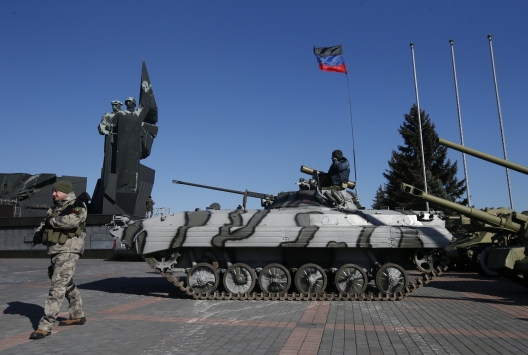 Thousands of Russian troops have crossed into eastern Ukraine in recent days, along with columns of tanks, artillery and air-defense systems, according to NATO’s top commander.
Thousands of Russian troops have crossed into eastern Ukraine in recent days, along with columns of tanks, artillery and air-defense systems, according to NATO’s top commander.
By nearly every definition – indeed, according to the Oxford dictionary – the act of armed forces crossing the border would constitute an invasion.
But the Obama administration has noticeably avoided using the word to describe Russia’s apparent action (Russia denies any of its troops or military equipment are in Ukraine). Instead, U.S. officials have resorted to terms like “incursion” or even more contorted rhetorical gymnastics.
“Russia is instead surging more forces and more equipment across the border,” Samantha Power, the U.S. Ambassador to the United Nations, said Wednesday. . . .
John Herbst, director of the Eurasia Center at the Atlantic Council and a former U.S. Ambassador to Ukraine, says it is “obvious” the Obama administration is trying to downplay the significance of Russia’s military aggression to avoid an equally forceful response.
“If they say invasion, they’re afraid it will pressure them to take the strong actions that they are reluctant to take,” he said. “It would make people ask ‘Well, why isn’t our response stronger?’ And that’s a very good question.”
This isn’t the first time.
In late August, when Ukrainian troops were close to defeating the Russia-backed rebels, NATO said it saw Russian troops crossing into Ukraine to bolster the rebel forces. Administration officials declined to call it an “invasion” then, too. . . .
President Obama called it an “ongoing Russian incursion.”
Image: Pro-Russian armor in Donetsk, Oct. 25, 2014 (photo: Reuters)
